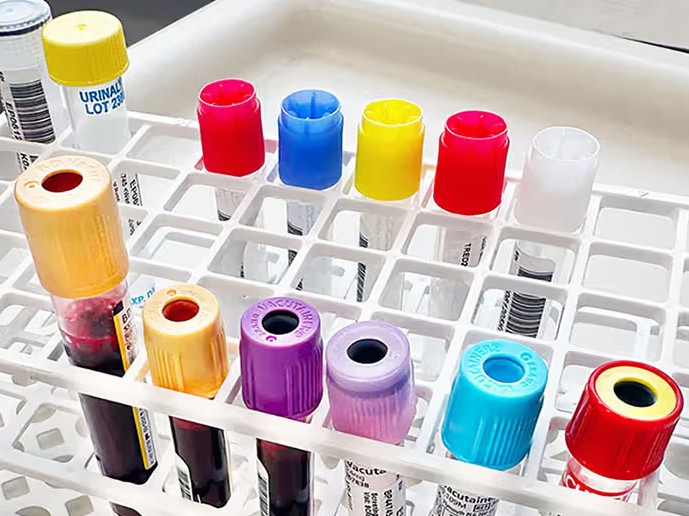The medical landscape constantly evolves with groundbreaking innovations, and one such advancement is the blood test for Alzheimer’s disease. It symbolizes a turning point that could redefine the diagnostic approach for one of the most common neurodegenerative disorders affecting millions worldwide.
Understanding Alzheimer’s Disease
Alzheimer’s is characterized by progressive memory loss, cognitive dysfunction, and significant changes in personality and behavior. As the population ages, the number of diagnoses is expected to skyrocket, emphasizing the need for early and accurate detection. Traditionally, diagnoses have relied heavily on cognitive assessments, brain imaging, and cerebrospinal fluid tests, each with its own set of challenges and limitations.
The Role of Blood Tests in Diagnosis
With the emergence of blood tests, medical professionals now have a more accessible and less invasive tool, potentially making diagnosis faster and more efficient. Unlike other testing forms, blood tests can be administered with minimal discomfort and can be regularly repeated, providing an opportunity for early intervention.
How the Blood Test Works
The Alzheimer’s blood test detects specific biomarkers associated with the disease. These biomarkers include abnormal levels of certain proteins that accumulate in the brains of those afflicted by Alzheimer’s. Key features of this groundbreaking test include:
- Detection of Amyloid and Tau Proteins: These proteins are known to form plaques and tangles in the brain, hallmarks of Alzheimer’s disease.
- Sensitivity and Specificity: Current tests deliver high accuracy rates, enhancing the reliability of results compared to traditional methods.
- Potential for Early Detection: Discovering Alzheimer’s at an earlier stage can lead to more effective management of the disease, slowing progression and improving patient quality of life.
Implications for Patients and Families
The advent of a reliable blood test carries profound implications. Primarily, it implies better accessibility to early diagnoses, which can alleviate uncertainty for patients and their families.
Benefits of Early Diagnosis
There are numerous benefits for both patients and their caregivers when Alzheimer’s is diagnosed early:
Access to clinical trials and potential new treatments
Ability to plan better for future care needs and legal matters
Opportunity for lifestyle changes that could slow disease progression
Moreover, knowing one’s status allows families to form support structures, potentially improving the overall emotional and psychological climate surrounding the patient’s journey.
Challenges and Considerations
Despite the promising advancements, some challenges persist in implementing blood tests as a standard diagnostic tool for Alzheimer’s.
Technical and Ethical Hurdles
- False Positives/Negatives: While specificity and sensitivity are high, no test is perfect. Errors can lead to anxiety or false reassurance.
- Ethical Concerns: The decision to test can present ethical questions about what to do with the information, especially in the absence of a cure.
- Integration into Current Practices: Incorporating new testing methods into established healthcare protocols requires substantial systemic adjustments.
Future Prospects of Alzheimer’s Detection and Management
The potential widespread use of Alzheimer’s blood tests heralds a new era in neurology and patient care. With researchers and developers focusing on improving technology for detecting and managing Alzheimer’s, the future holds exciting possibilities.
Technological Innovations on the Horizon
Emerging technologies could provide even more refined tools for detecting Alzheimer’s at its earliest stages, combining blood tests with advanced imaging and artificial intelligence:
- AI Integration: Algorithms analyzing patterns in data could enhance diagnosis accuracy.
- Combined Modalities: Combining blood tests with imaging technologies may offer comprehensive insights for personalized treatment strategies.
The hope is that innovations will not only streamline diagnosis but also personalize treatment and management plans for individuals based on their unique genetic and biochemical profiles.
Enhancing Public Awareness and Support
Finally, alongside technological advancement, public awareness and education must advance. Understanding the importance of early diagnosis and encouraging regular medical check-ups should become a universally endorsed practice.
Building a Supportive Ecosystem
Communities and healthcare providers must prioritize creating a robust support system for Alzheimer’s patients and their families. Key factors include:
Increased funding and resources for Alzheimer’s research
Public health campaigns to reduce stigma and educate
Enhanced caregiver support and education programs
By prioritizing these crucial areas, we can ensure that society is well-prepared to cope with the rising numbers of Alzheimer’s cases in an aging global population.
The development of a blood test for Alzheimer’s is not just a scientific achievement but a beacon of hope. It promises not only to change how we diagnose Alzheimer’s but potentially how we view and approach all neurodegenerative diseases in the years to come.









